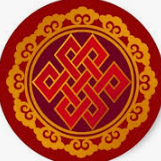Thai Sayings and Phrases Wanted
-
Recently Browsing 0 members
- No registered users viewing this page.
-
Topics
-
Popular Contributors
-
Latest posts...
-
293
-
1,028
What Movies or TV shows are you watching (2025)
New Guy Ritchie movie out next week. Two estranged siblings join forces to seek the legendary Fountain of Youth. Using historical clues, they embark on an epic quest filled with adventure. If successful, the mythical fountain could grant them immortality. -
-
-
4
Crime Indian Tourist Found Dead on Koh Samet with Head Bound in Plastic Bag
Scary stuff. What's going on out there? Motive? -
5
Report Thai Defense Minister Phumtham Denies Deal To Hand Over Sub To Cambodia
Good one. But even better would be to gift it to Germany. 😂
-
-
Popular in The Pub
-








.thumb.gif.4320be21824a949fd08700f6ee740303.gif)



Recommended Posts
Create an account or sign in to comment
You need to be a member in order to leave a comment
Create an account
Sign up for a new account in our community. It's easy!
Register a new accountSign in
Already have an account? Sign in here.
Sign In Now